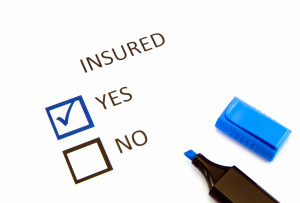Divorce can be complex. Untangling finances, figuring out what to do for the children, and determining what’s community property can take time. Adding the complication of an insurance settlement to a divorce certainly doesn’t help.
The Law on Personal Injury Settlements
California law addresses insurance settlements in California Family Code 780 and 2603. While some of the language is vague, the law does address whether settlements are separate or community property.
Injuries During Marriage.
When a personal injury cause of action – the event that led to the injury – occurs during a marriage, then the insurance settlement for those injuries is considered community property. As such, the settlement is split 50-50 between the parties, even if only one party was injured.
Sometimes parties divorce after the accident, but before the insurance settlement is received. The community property/separate property determination is made based on when the injury occurred, not when the settlement is received.
Injuries Incurred Outside the Marriage.
If an injury occurred before parties were married, or after they start living separately, then the insurance settlement belongs only to the injured party. The term “living separately” does not necessarily mean “date of separation.”
For example, an unmarried person is seriously injured in a car accident, then later marries. The cause of action for the personal injury occurred before the marriage. Any insurance settlement is the property of the injured party only.
Reimbursement for Expenses
One exception to the separate property case noted above involves reimbursement for expenses paid by the non-injured spouse. Family Code 781(b) states that expenses paid by the non-injured person from separate property or community property may be reimbursed.
For example, if one spouse may be injured in an accident before the marriage. After the marriage takes place, the uninjured spouse pays expenses that relate to the injuries suffered in the accident. The uninjured spouse may be able to recover at least part of their expenses from the insurance settlement received by the injured spouse.



